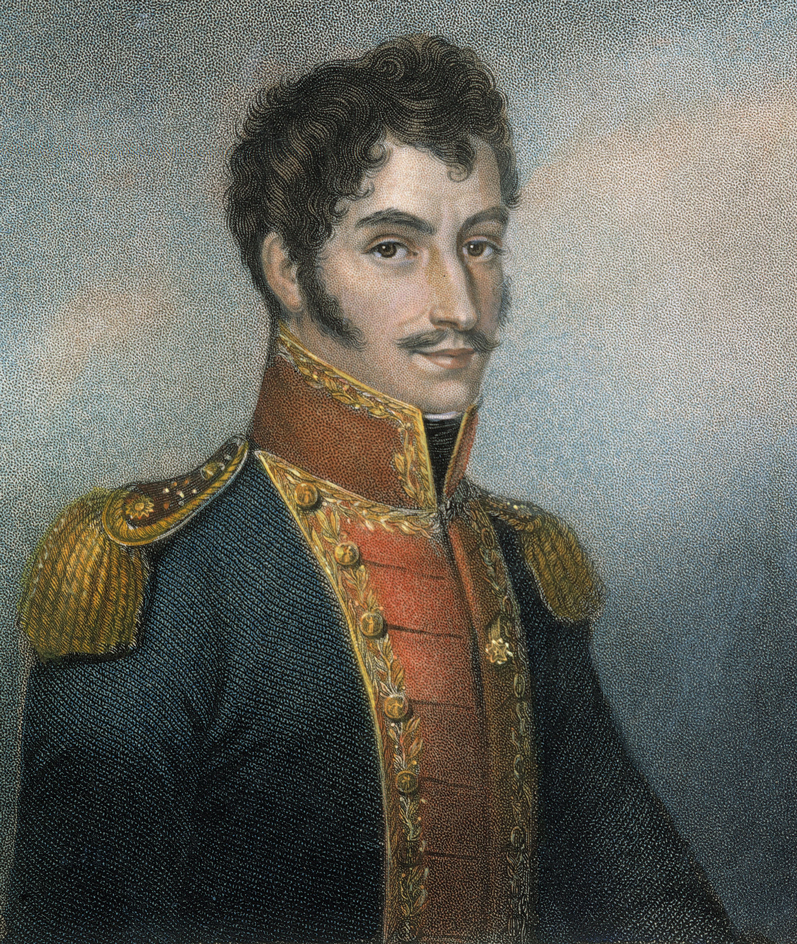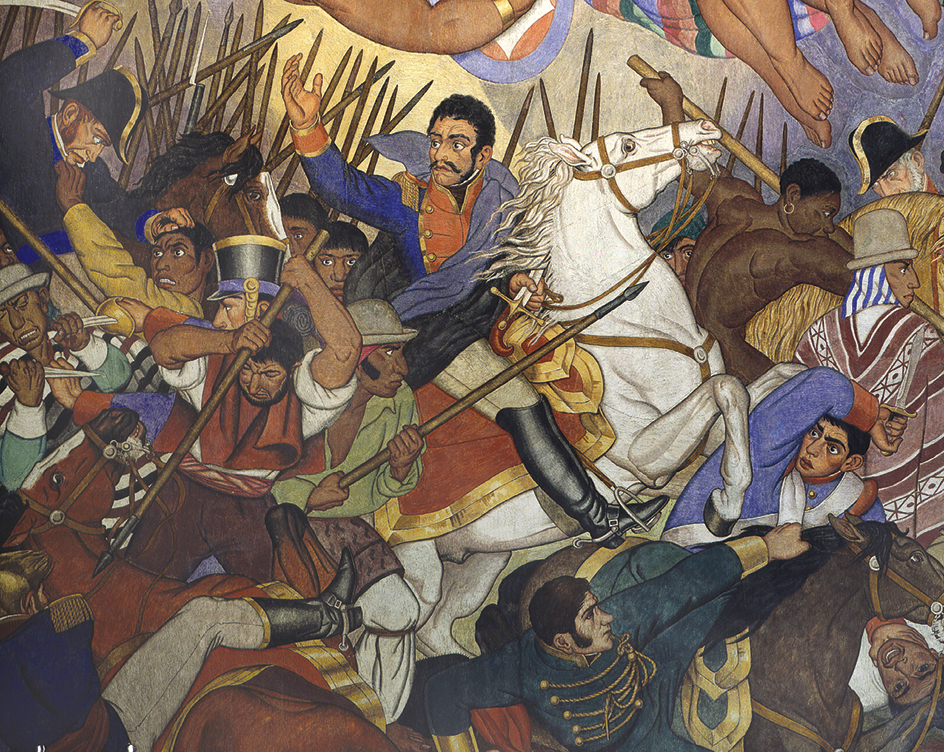Bolívar, Simón, << BOL uh vuhr or boh LEE vahr, SY muhn or see MAWN >> (1783-1830), was one of South America’s greatest generals. His victories over the Spaniards won independence for Bolivia, Colombia, Ecuador, Peru, and Venezuela. Bolívar is called El Libertador (The Liberator) and the “George Washington of South America.”

Early life.
Bolívar was born on July 24, 1783, in Caracas, Venezuela. His parents died when he was a child, and he inherited a fortune. As a young man, he traveled in Europe and married a daughter of a Caracas-born nobleman. She died less than a year after their return to Caracas. Grief-stricken, Bolívar again toured Europe, and while in Rome made a vow to liberate Venezuela.
Fight for freedom.
On his return to Venezuela, Bolívar joined the group of patriots that seized Caracas in 1810 and proclaimed an independent government. He went to the United Kingdom in search of aid but could get only a promise of British neutrality. Then he returned to Venezuela and took command of a patriot army. He recaptured Caracas in 1813 from the Spaniards, who had regained control of Venezuela after Francisco de Miranda’s surrender (see Miranda, Francisco de ). Bolívar became dictator of the country.
The Spaniards forced Bolívar to retreat from Venezuela to the territory that later became Colombia. He took command of a Colombian force and captured Bogotá in 1814. But new defeats led him to flee to Jamaica. In Haiti, he gathered a force that landed in Venezuela in 1816 and captured Angostura (now Ciudad Bolívar). He then became the dictator there.
His victories.
Bolívar marched south in 1819. He defeated the Spaniards at Boyaca in 1819, liberating the territory of Colombia. He then returned to Angostura and led the congress that organized the republic of Gran Colombia. At first, Gran Colombia included what are now Colombia and Venezuela. Panama joined the republic in 1821, and Ecuador joined it in 1822. Bolívar became its first president on Dec. 17, 1819.

Bolívar crushed the Spanish army at Carabobo in Venezuela on June 24, 1821. Next, he marched into Ecuador and added that territory to the new Colombian republic. Bolívar became dictator of Peru in 1824.
Under the leadership of General Antonio Jose de Sucre, Bolívar’s army won a victory over the Spaniards at Ayacucho in 1824, which ended Spanish power in South America. Upper Peru became a separate state, named Bolivia in Bolívar’s honor, in 1825. The constitution that Bolívar drew up for Bolivia is one of his most important political pronouncements.
Bolívar hoped to form a union of the new South American nations against Spain and to establish close relations between these nations and the United Kingdom. But the achievement fell short of his hopes. By 1830, the republic of Gran Colombia had split into three separate countries—Colombia (including Panama), Ecuador, and Venezuela. Feeling against Bolívar grew strong. He narrowly escaped assassination in Bogotá. He resigned as president of Colombia in early 1830 and died on December 17 of that year.
See also Bolivia (Independence) ; Latin America (The wars of independence) ; Peru (The war of independence) ; Venezuela (History) .
